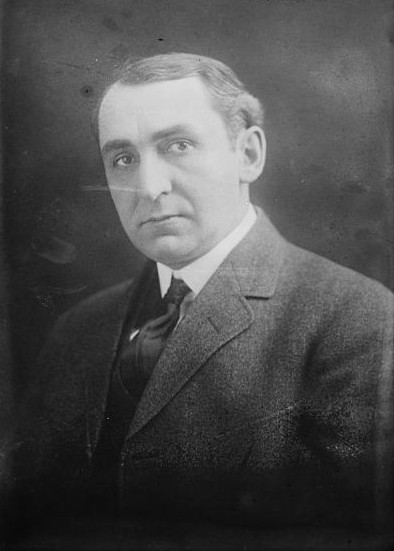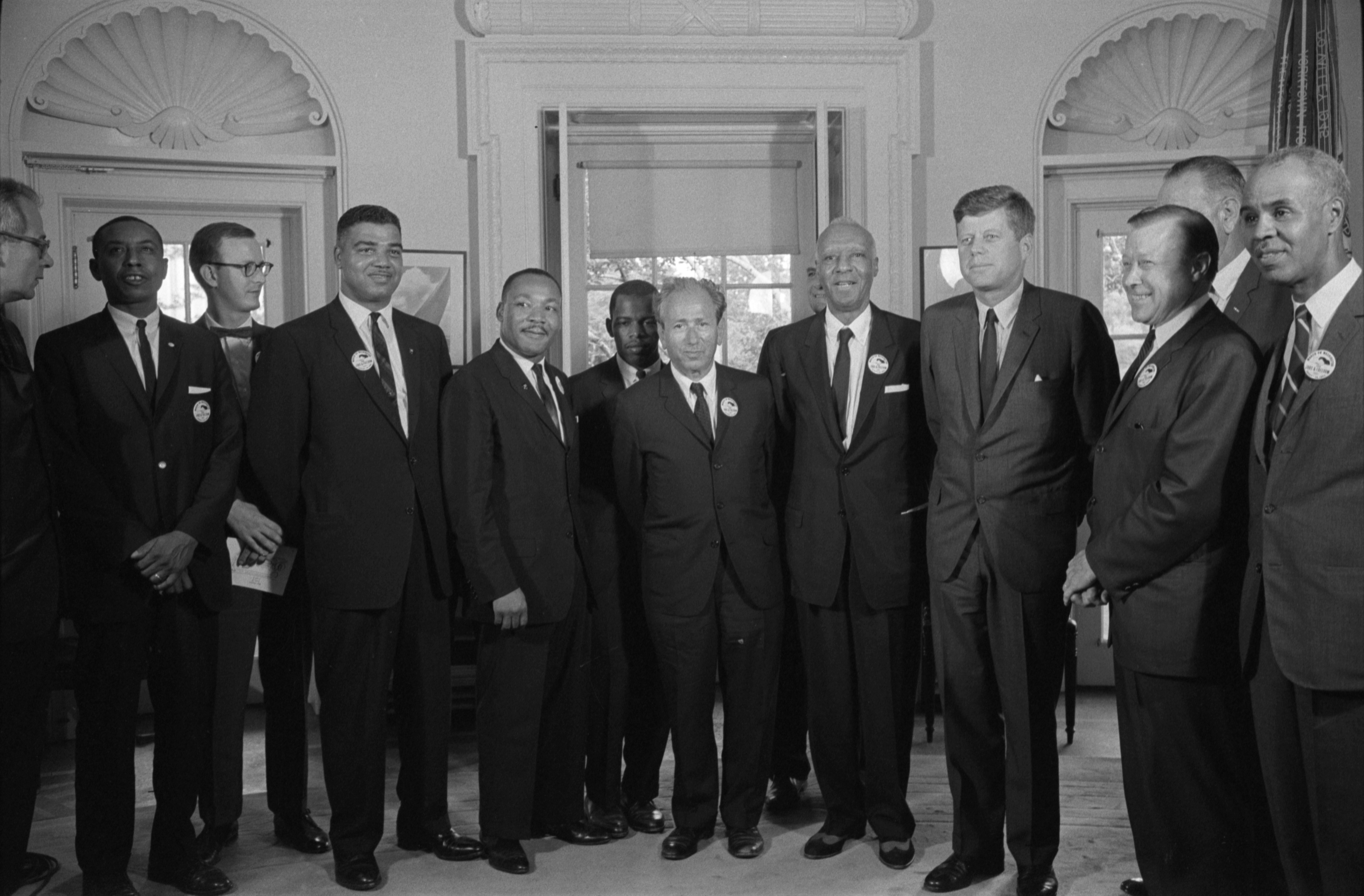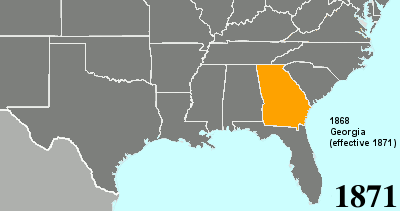|
John B. Bennett
John Bonifas Bennett (January 10, 1904 – August 9, 1964) was an American lawyer and politician from the U.S. state of Michigan. He served in the United States House of Representatives from 1947 to 1964. Early life and education Bennett was born in Garden, Michigan, his mother was an immigrant from Luxembourg. He attended the public schools, and graduated from Watersmeet Township, Michigan, Watersmeet High School. He graduated from Marquette University Law School in 1925 and took a post-graduate course at the University of Chicago Law School in 1926. He was admitted to the Wisconsin bar (law), bar in 1925 and to the Michigan bar in 1926. He practiced law in Ontonagon, Michigan, from 1926 through 1942. He was prosecuting attorney of Ontonagon County, Michigan, Ontonagon County from 1929 to 1934 and the deputy commissioner of the Michigan Department of Labor and Industry from 1935 to 1937. Tenure in Congress Bennett was unsuccessful in his first two attempts for a seat in the U ... [...More Info...] [...Related Items...] OR: [Wikipedia] [Google] [Baidu] |
Michigan's 12th Congressional District
Michigan's 12th congressional district is a U.S. congressional district in Michigan. The district was first created during the reapportionment and redistricting after the 1890 census. From 2003 to 2013, it was located in Detroit's inner suburbs to the north, along the Interstate 696 corridor in Macomb and Oakland counties, and a portion of Macomb north of the corridor. District boundaries were redrawn in 1993 and 2003 due to reapportionment following the censuses of 1990 and 2000.U.S. Representatives 1837-2003 Michigan Manual 2003-2004 After Michigan's congressional map was redrawn in 2022, the 12th lost Ann Arbor and most of its suburbs and was re-centered around the cities of |
Wisconsin
Wisconsin ( ) is a U.S. state, state in the Great Lakes region, Great Lakes region of the Upper Midwest of the United States. It borders Minnesota to the west, Iowa to the southwest, Illinois to the south, Lake Michigan to the east, Michigan to the northeast, and Lake Superior to the north. With a population of about 6 million and an area of about 65,500 square miles, Wisconsin is the List of U.S. states and territories by population, 20th-largest state by population and the List of U.S. states and territories by area, 23rd-largest by area. It has List of counties in Wisconsin, 72 counties. Its List of municipalities in Wisconsin by population, most populous city is Milwaukee; its List of capitals in the United States, capital and second-most populous city is Madison, Wisconsin, Madison. Other urban areas include Green Bay, Wisconsin, Green Bay, Kenosha, Wisconsin, Kenosha, Racine, Wisconsin, Racine, Eau Claire, Wisconsin, Eau Claire, and the Fox Cities. Geography of Wiscon ... [...More Info...] [...Related Items...] OR: [Wikipedia] [Google] [Baidu] |
Civil Rights Act Of 1964
The Civil Rights Act of 1964 () is a landmark civil rights and United States labor law, labor law in the United States that outlaws discrimination based on Race (human categorization), race, Person of color, color, religion, sex, and national origin. It prohibits unequal application of voter registration requirements, racial segregation in schools and public accommodations, and employment discrimination. The act "remains one of the most significant legislative achievements in American history". Initially, powers given to enforce the act were weak, but these were supplemented during later years. Congress asserted its authority to legislate under several different parts of the United States Constitution, principally its Enumerated powers (United States), enumerated power to regulate interstate commerce under the Commerce Clause of Article One of the United States Constitution#Section 8: Powers of Congress, Article I, Section 8, its duty to guarantee all citizens Equal Protectio ... [...More Info...] [...Related Items...] OR: [Wikipedia] [Google] [Baidu] |
Twenty-fourth Amendment To The United States Constitution
The Twenty-fourth Amendment (Amendment XXIV) of the United States Constitution prohibits both US Congress, Congress and the US states, states from requiring the payment of a Poll taxes in the United States, poll tax or any other tax to vote in US federal election, federal elections. The amendment was proposed by Congress to the states on August 27, 1962, and was ratified by the states on January 23, 1964. Southern United States, Southern states of the former Confederate States of America adopted Poll taxes in the United States, poll taxes both in their state laws and in their state constitutions throughout the late-19th and early-20th centuries. This became more widespread as the Democratic Party regained control of most levels of government in the South in the decades after Reconstruction era of the United States, Reconstruction. The purpose of poll taxes was to prevent African Americans and poor whites from voting. Use of the poll tax by states was held to be constitutional b ... [...More Info...] [...Related Items...] OR: [Wikipedia] [Google] [Baidu] |
Civil Rights Act Of 1960
The Civil Rights Act of 1960 () is a United States federal law that established federal inspection of local voter registration polls and introduced penalties for anyone who obstructed someone's attempt to register to vote. It dealt primarily with discriminatory laws and practices in the segregated South, by which African-Americans and Tejanos had been effectively disenfranchised since the late 19th and start of the 20th century. This was the fifth Civil Rights Act to be enacted in United States history. Over an 85-year period, it was preceded only by the Civil Rights Act of 1957, whose shortcomings largely influenced its creation. This law served to more effectively enforce what was set forth in the 1957 act through eliminating certain loopholes in it, and to establish additional provisions. Aside from addressing voting rights, the Civil Rights Act of 1960 also imposed criminal penalties for obstruction of court orders to limit resistance to the Supreme Court's school desegrega ... [...More Info...] [...Related Items...] OR: [Wikipedia] [Google] [Baidu] |
Civil Rights Act Of 1957
The Civil Rights Act of 1957 was the first federal civil rights law passed by the United States Congress since the Civil Rights Act of 1875. The bill was passed by the 85th United States Congress and signed into law by President Dwight D. Eisenhower on September 9, 1957. The Supreme Court's 1954 ruling in the case of '' Brown v. Board of Education'' brought the issue of school desegregation to the fore of public attention, as Southern Democratic leaders began a campaign of " massive resistance" against desegregation. In the midst of this campaign, President Eisenhower proposed the bill to provide federal protection for African American voting rights; most African Americans in the Southern United States had been disenfranchised by state and local laws. Though the bill passed Congress, opponents of the act were able, in the Senate, to remove stringent voting protection clauses via the Anderson–Aiken amendment and the O'Mahoney jury trial amendment, significantly watering ... [...More Info...] [...Related Items...] OR: [Wikipedia] [Google] [Baidu] |
Emil Hurja
Emil Edward Hurja (January 22, 1892 – May 30, 1953) was an American newspaper editor and political consultant. Hurja was a pioneer of political opinion polling and played an advisory role during the presidency of Franklin D. Roosevelt. He was known as the Wizard of Washington. Biography Hurja was born in Crystal Falls, Michigan. He was one of twelve children born to Matt Hurja (originally Pitkäkangas), a shopkeeper, (1863–1931) and Anna Liisa (''née'' ''Keisari'') Hurja (1870–1940), both of whom were immigrants from Finland to the Upper Peninsula of Michigan. In 1917, he received his A.B. at the University of Washington, where he covered the Ford Peace Expedition of 1915 as a college journalist. He served as a captain in the United States Army during World War I. He worked as the newspaper editor for the ''Breckenridge Daily American'' (1921–1926) in Breckenridge, Texas. He was editor of the ''Pathfinder'' magazine (1939–1945). Hurja was chief pollster of the Democ ... [...More Info...] [...Related Items...] OR: [Wikipedia] [Google] [Baidu] |
78th United States Congress
The 78th United States Congress was a meeting of the legislative branch of the United States federal government, composed of the United States Senate and the United States House of Representatives. It met in Washington, D.C., from January 3, 1943, to January 3, 1945, during the last two years of Franklin D. Roosevelt's presidency. The apportionment of seats in the House of Representatives was based on the 1940 United States census. Both chambers had a Democratic majority - albeit greatly reduced from the 77th Congress, with the Democrats losing their supermajority in the House and Senate. Along with President Franklin D. Roosevelt, the Democrats maintained an overall federal government trifecta. Major events * World War II continued (1941–1945) * June 6, 1944: Battle of Normandy * November 7, 1944: General elections: ** President Roosevelt was re-elected to a fourth term. ** Senate Democrats kept their majority despite 1-seat net loss. ** House Democrats increased thei ... [...More Info...] [...Related Items...] OR: [Wikipedia] [Google] [Baidu] |
Frank E
Frank, FRANK, or Franks may refer to: People * Frank (given name) * Frank (surname) * Franks (surname) * Franks, a Germanic people in late Roman times * Franks, a term in the Muslim world for all western Europeans, particularly during the Crusades Currency * Liechtenstein franc or frank, the currency of Liechtenstein since 1920 * Swiss franc or frank, the currency of Switzerland since 1850 * Westphalian frank, currency of the Kingdom of Westphalia between 1808 and 1813 * The currencies of the German-speaking cantons of Switzerland (1803–1814): ** Appenzell frank ** Aargau frank ** Basel frank ** Berne frank ** Fribourg frank ** Glarus frank ** Graubünden frank ** Luzern frank ** Schaffhausen frank ** Schwyz frank ** Solothurn frank ** St. Gallen frank ** Thurgau frank ** Unterwalden frank ** Uri frank ** Zürich frank Places * Frank, Alberta, Canada, an urban community, formerly a village * Franks, Illinois, United States, an unincorporated community * Frank ... [...More Info...] [...Related Items...] OR: [Wikipedia] [Google] [Baidu] |
Democrat (United States)
The Democratic Party is a center-left political party in the United States. One of the major parties of the U.S., it was founded in 1828, making it the world's oldest active political party. Its main rival since the 1850s has been the Republican Party, and the two have since dominated American politics. The Democratic Party was founded in 1828 from remnants of the Democratic-Republican Party. Senator Martin Van Buren played the central role in building the coalition of state organizations which formed the new party as a vehicle to help elect Andrew Jackson as president that year. It initially supported Jacksonian democracy, agrarianism, and geographical expansionism, while opposing a national bank and high tariffs. Democrats won six of the eight presidential elections from 1828 to 1856, losing twice to the Whigs. In 1860, the party split into Northern and Southern factions over slavery. The party remained dominated by agrarian interests, contrasting with Republican su ... [...More Info...] [...Related Items...] OR: [Wikipedia] [Google] [Baidu] |
Department Of Labor And Industry
The Pennsylvania Department of Labor and Industry is a cabinet-level agency in the Government of Pennsylvania. The agency is charged with the task of overseeing the health and safety of workers, enforcement of the Pennsylvania Uniform Construction Code, vocational rehabilitation for people with disabilities, and administration of unemployment benefits and Workers' compensation. History When this agency was founded by Governor John Kinley Tener, John Price Jackson was appointed as the first Commissioner. Jackson was confirmed in post by Governor Martin Grove Brumbaugh on June 2, 1917, but took a leave of absence from state office when accepted a Commission in the US Army following the United States entry into the First World War. Secretaries of Labor and Industry See also * Government of Pennsylvania * List of Pennsylvania state agencies State related agencies of the Commonwealth (U.S. state), Commonwealth of Pennsylvania. Agencies *Pennsylvania Attorney General *Pennsylvania ... [...More Info...] [...Related Items...] OR: [Wikipedia] [Google] [Baidu] |
Ontonagon County, Michigan
Ontonagon County ( ) is a County (United States), county in the Upper Peninsula of the U.S. state of Michigan. As of the 2020 United States census, 2020 census, the population was 5,816, making it Michigan's third-least populous county. The county seat is Ontonagon, Michigan, Ontonagon. The county was set off in 1843, and organized in 1848. Its territory had been organized as part of Chippewa County, Michigan, Chippewa and Mackinac County, Michigan, Mackinac counties. With increasing population in the area, more counties were organized. After Ontonagon was organized, it was split to create Gogebic County, Michigan, Gogebic County. It is also the westernmost county in United States that lies within the Eastern Time Zone. History In 1843, Michigan's Upper Peninsula was divided into Mackinac County, Michigan, Mackinac, Chippewa County, Michigan, Chippewa, Marquette County, Michigan, Marquette, Schoolcraft County, Michigan, Schoolcraft, Delta County, Michigan, Delta, and Ontonag ... [...More Info...] [...Related Items...] OR: [Wikipedia] [Google] [Baidu] |


